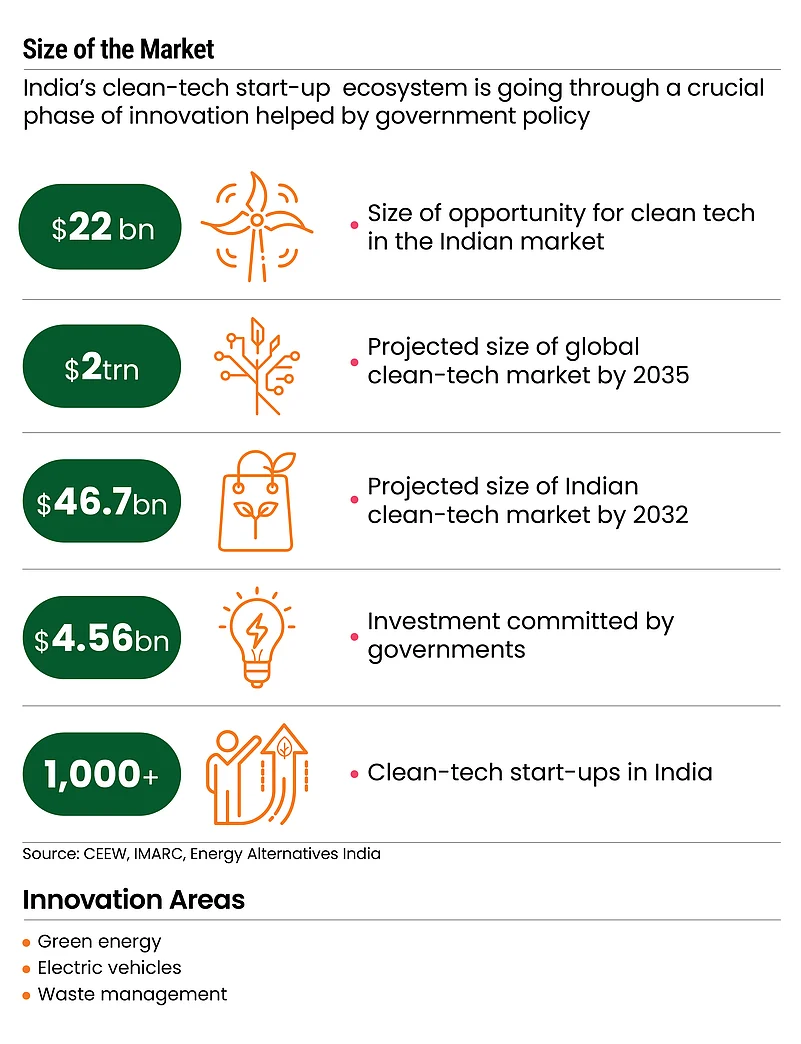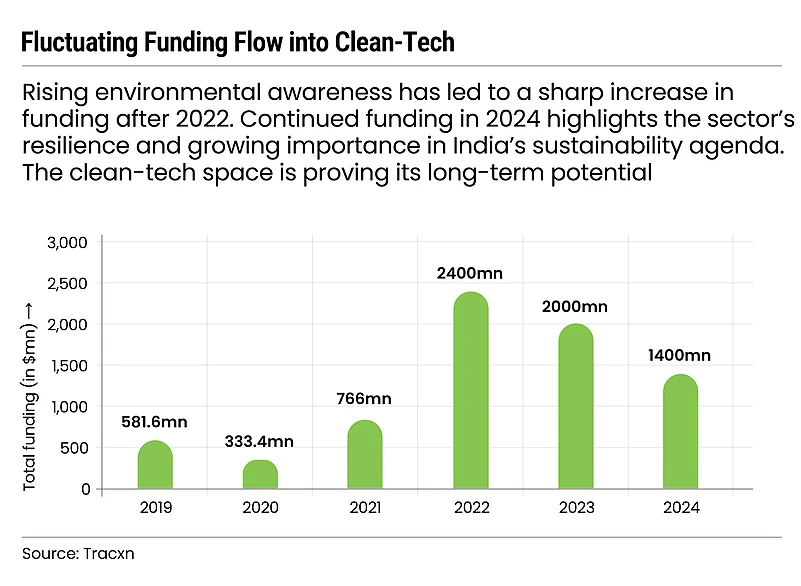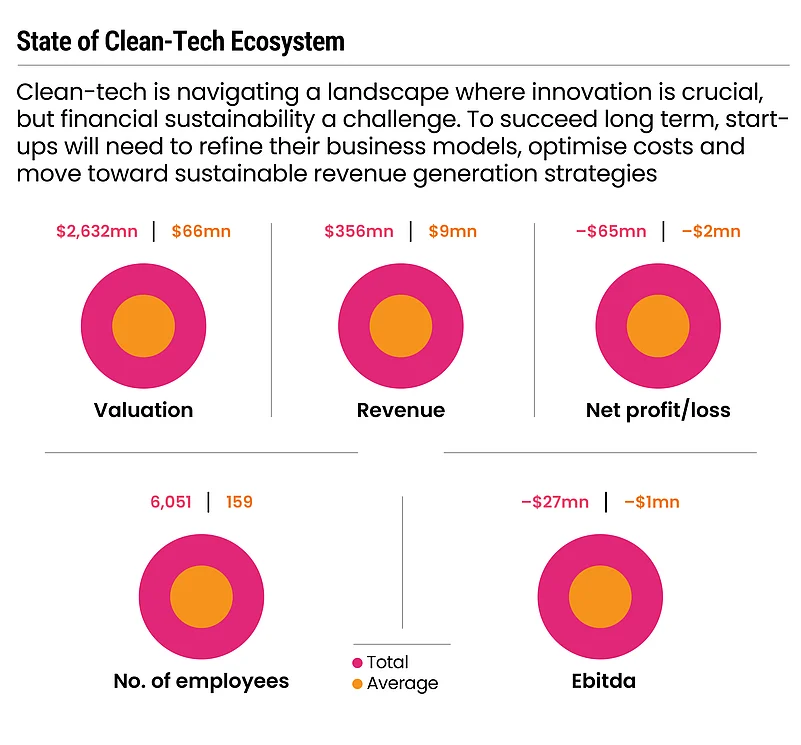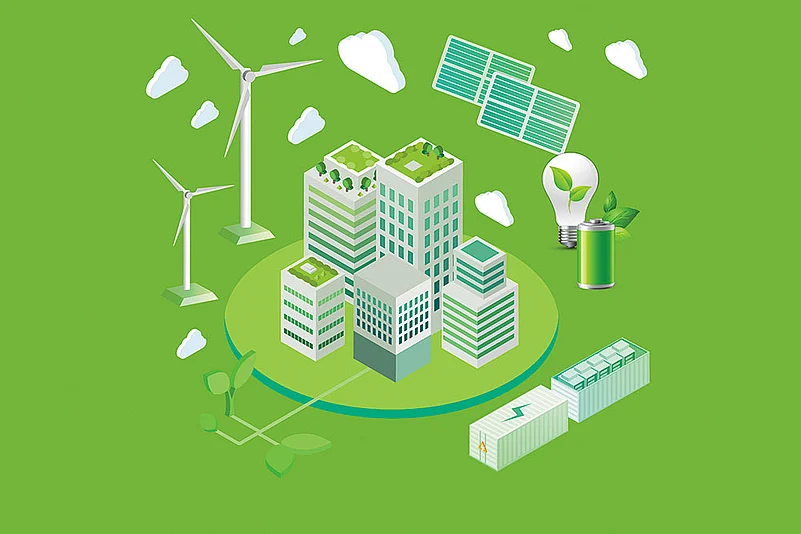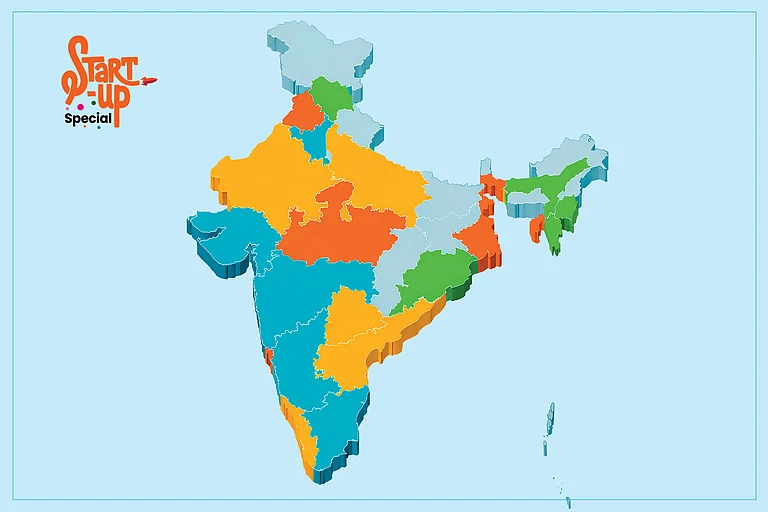Battery Smart
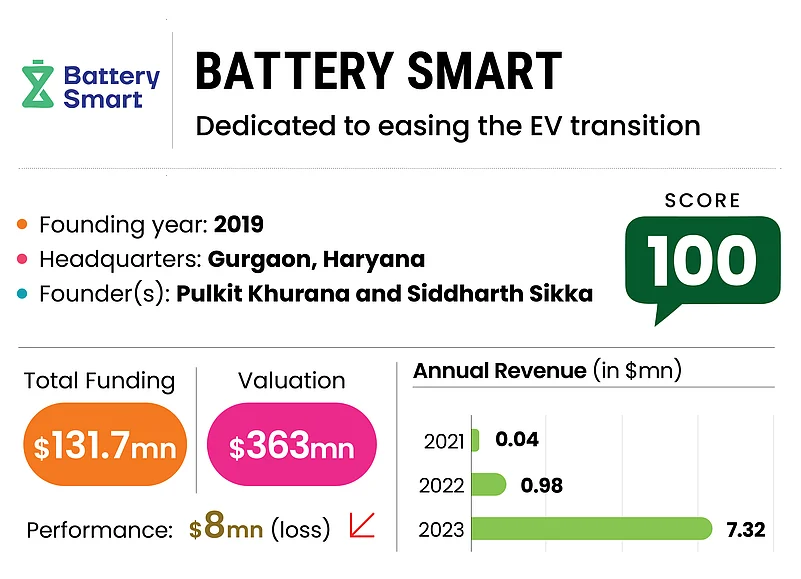
The company was founded by IITians Siddharth Sikka and Pulkit Khurana to create a space for sustainable transport. The company aims to address the barriers in the way of electric vehicle adoption such as long charging times and range anxiety through the use of battery swapping. Through this method, the battery is decoupled from the vehicle. The method, according to the company, has helped reduce costs for electric vehicle (EV) owners.
'We reduced over 280,000 tonnes of CO2 emissions and generated Rs 660 crore income for drivers' Pulkit Khurana Co-founder
In less than five years, Battery Smart has built over 1,400 battery-swapping stations in more than 40 cities. Unlike its competitors that build batteries in house, Battery Smart collaborates with 10 leading original equipment manufacturers (OEMs) to source batteries. Through 2025, the start-up aims to expand its battery-swapping network further with an aim to enhance accessibility for EV users in areas with limited charging infrastructure.
Lohum
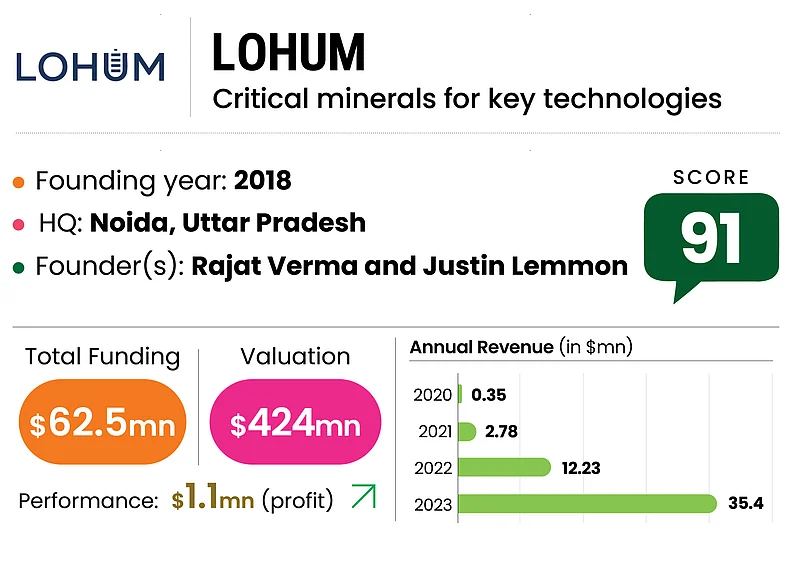
Founded in 2018, the start-up produces high quality lithium, nickel, cobalt and platinum group metals as well as rare earth metals for energy transition and emerging industries. The company says that its biggest market advantage is its 99.9% critical mineral purity levels, low carbon dioxide emissions, water-intensive processes and expeditious research and development.
'The people you work with matter the most. Investing in R&D always pays off' Rajat Verma Founder and chief executive
Through 2025, the start-up aims to grow its revenue and expand its global footprint with a focus on the US and Europe and expand its portfolio of critical minerals processing capabilities. By reducing reliance on virgin resource extraction, Lohum wants to bring about a paradigm shift in the critical minerals industry.
Blusmart
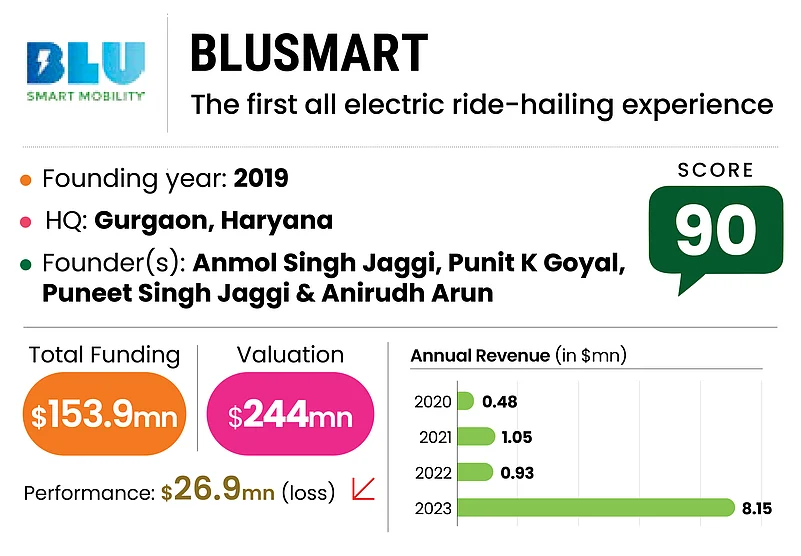
India’s first all-electric ride-hailing service, BluSmart came into being in 2019 to reduce the cost of car ownership, fuel costs and curb the burden of overwork on cab drivers. Over the next few years, the start-up wants to build a large consumer-tech company that modernises transport across major metros. Headquartered in Gurgaon, Haryana, the company is currently operational in Delhi-NCR, Bengaluru, Mumbai. It also operates in the United Arab Emirates (UAE).
'Organisations must innovate, keep their ear to the ground and be ready to make agile decisions' Punit Goyal, Co-founder
One of the biggest factors that has helped the company earn the confidence of investors is its ability to scale despite the pandemic and the rapid evolution of electric vehicle technology. Latest numbers show that the ride-hailing service has curbed 43,000 tonnes of carbon dioxide emissions.
Charge zone
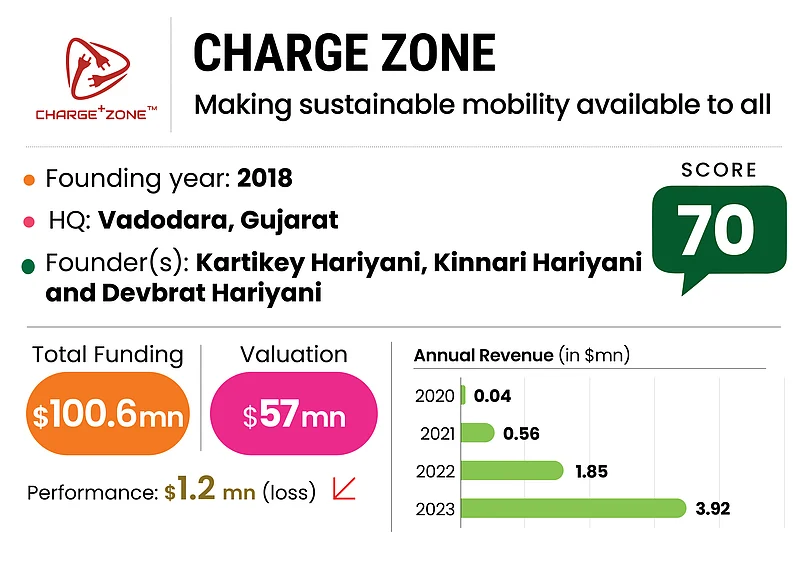
The company was founded in 2018 with an aim to transform the electric vehicle charging ecosystem in India. By introducing charging stations in urban and semi-urban areas, the start-up has spread fast charging that has helped reduce charging times for electric vehicles.
The company’s charging network is driven by a technology it calls grid-to-vehicle (G2V), that enables an unmanned electric vehicle charging experience for the end user.
On its website, the company says: “At Charge Zone, we envision a future where sustainable mobility is seamless and available to all. Our mission is to lead the way in cutting-edge charging solutions, spearheading innovation in electric vehicle infrastructure.”
The company says it adheres to electrical standards, and ensures installation of physical safeguards, robust emergency preparedness and continuous monitoring for hazards as well as a proactive user education mechanism for accident prevention.
Recykal
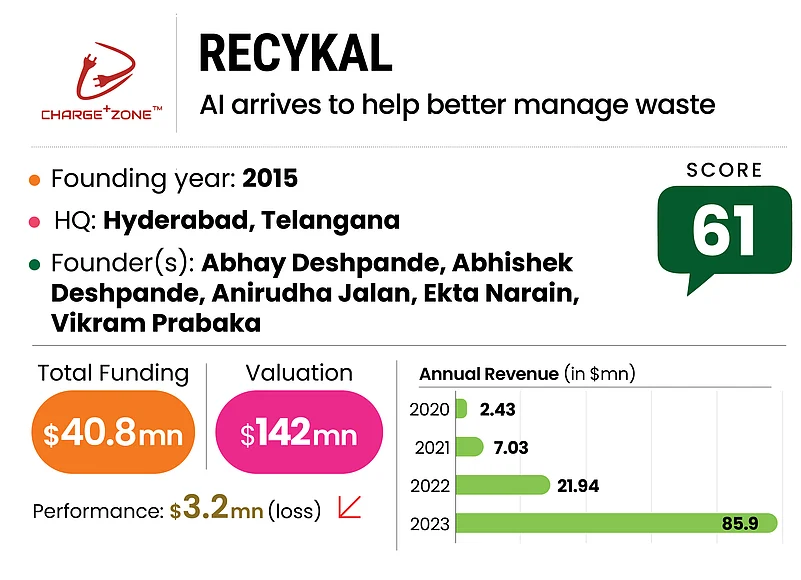
With a strong network of brands, recyclers, waste aggregators and government bodies, the start-up's approach to waste management is infused with artificial intelligence (AI) and Internet of Things (IoT). The start-up also integrates waste pickers into formal supply chains, thereby improving their livelihoods.
'Integration of formal and informal waste management sectors shows inclusivity leads to efficiency' Abhay Deshpande Founder and chief executive
The company’s extended producer responsibility (EPR) compliance solutions help businesses aiming to achieve circularity. Its tech-enabled solutions like traceable plastic recovery align with global environment, social and governance (ESG) goals. In the year ahead, Recykal wants to partner with more corporate groups to promote traceable EPR compliance and traceability initiatives.
Clean, Green Opportunity
Clean-tech start-ups are driving innovation with government backing but scaling challenges loom. As funding fluctuates and losses persist, these companies must evolve to turn environmental solutions into sustainable business models
